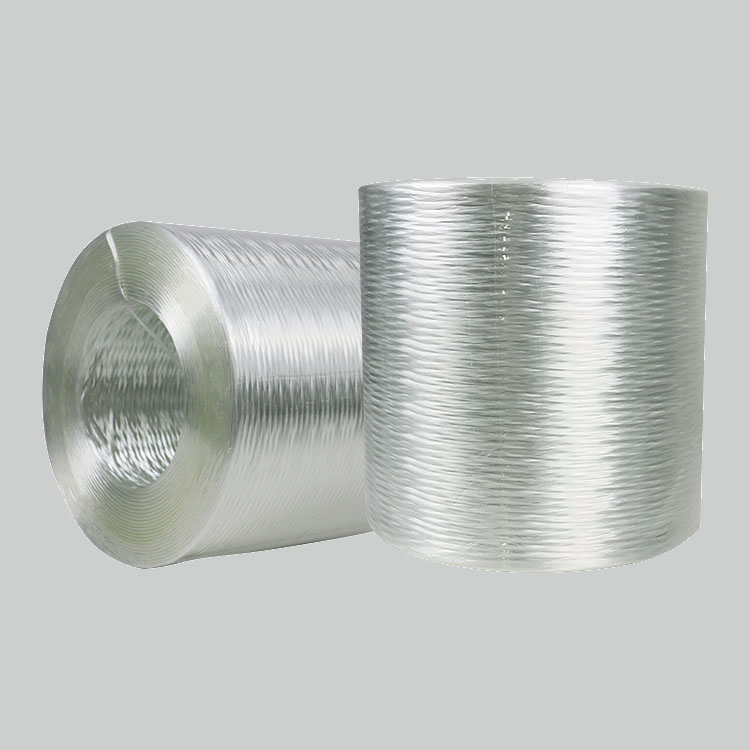Oct. 31, 2023
Minerals & Metallurgy
Fiberglass yarn may not be the first thing that comes to mind when you think about versatile materials, but it's a powerhouse in various industries, from construction to aerospace. In this article, we'll explore the fascinating world of fiberglass yarn, its unique properties, and the wide range of applications that make it an indispensable material for modern life.

What is Fiberglass Yarn?
Fiberglass yarn is a lightweight, strong, and durable material made from fine fibers of glass. These fibers are carefully woven together to create a continuous strand of yarn. The glass used in fiberglass yarn is typically melted and drawn into tiny filaments, making it an excellent choice for applications that demand both strength and flexibility. Now, let's dive into some of the remarkable uses of fiberglass yarn.
1. Reinforcing Composites
One of the most prominent applications of fiberglass yarn is in the field of composites. Composites are materials created by combining two or more different substances to enhance their properties. When it comes to reinforcing composites, fiberglass yarn plays a pivotal role. By impregnating the yarn with resin, it becomes an essential component in products like fiberglass-reinforced plastics (FRP) or fiberglass-reinforced concrete (GRC). These composites benefit from the high tensile strength of fiberglass yarn, making them ideal for structural applications.
2. Construction and Building Industry
Fiberglass yarn is widely employed in the construction and building industry for its exceptional strength and resistance to corrosion. It is a key component in producing fiberglass insulation, used to insulate homes and commercial buildings. The yarn's heat-resistant properties also make it an integral part of fire-resistant materials, which enhance the safety of structures. Furthermore, it is used to reinforce concrete, providing added structural stability.
3. Insulation Materials
Fiberglass yarn's insulating properties have led to its use in insulation materials for both residential and industrial purposes. It is an excellent thermal insulator, capable of withstanding high temperatures. This makes it a top choice for insulating pipes, ducts, and industrial equipment. Fiberglass yarn helps maintain the desired temperature within these systems, conserving energy and reducing the risk of heat-related accidents.
4. Automotive Industry
The automotive industry relies on fiberglass yarn for various applications, primarily for manufacturing lightweight and strong components. Fiberglass yarn is used in the production of car parts, such as bumpers, hoods, and spoilers, contributing to the reduction of the overall vehicle weight. This not only enhances fuel efficiency but also improves the car's performance and reduces its carbon footprint.
5. Aerospace and Aviation
Fiberglass yarn's remarkable properties extend to the aerospace and aviation sectors. Its lightweight nature and high strength-to-weight ratio are highly valued in the production of aircraft components. It is used in constructing the fuselage, wings, and even rotor blades for helicopters. The material's resistance to extreme temperatures and the harsh conditions of high altitudes make it a trusted choice in these industries.
Suggested reading:6. Marine Industry
The marine industry benefits from fiberglass yarn's corrosion-resistant properties. It is frequently used in boat building to create sturdy and durable hulls, decks, and components that can withstand the harsh conditions of saltwater and UV exposure. The yarn's strength ensures that boats and ships maintain their integrity, even in rough seas.
7. Electrical Insulation
Fiberglass yarn is a go-to material for electrical insulation due to its high dielectric strength. It is used in the production of electrical cables, wires, and insulating tapes. The non-conductive nature of fiberglass yarn prevents electrical leakage and ensures the safety of electrical systems, making it indispensable for the power and telecommunications industries.
8. Textiles and Fabrics
In the realm of fashion and textiles, fiberglass yarn may not be the most obvious choice, but it is gaining popularity due to its unique properties. It is blended with other fabrics to create fire-resistant and heat-resistant clothing. Firefighters, welders, and industrial workers benefit from the added safety provided by these specialized garments.
9. Filtration Systems
Fiberglass yarn is essential in the manufacture of air and liquid filtration systems. Its fine fibers are woven into filter media, providing an efficient barrier against contaminants. These filters are commonly used in air purifiers, water treatment plants, and industrial processes that require clean and safe fluids or gases.
10. Sporting Goods
Fiberglass yarn is incorporated into various sporting goods to enhance their performance and durability. Fishing rods, for example, often feature fiberglass composite materials, making them lightweight and strong. Additionally, fiberglass yarn is used in the production of sports equipment like tennis rackets, skis, and even archery bows.
Conclusion
Fiberglass yarn is a versatile material that has woven its way into numerous industries, offering strength, durability, and resilience. Its applications span from the construction and automotive sectors to aerospace, marine, and textiles. With its remarkable properties and adaptability, fiberglass yarn continues to shape the way we build, protect, and innovate in the modern world.
Whether you're on an aircraft at 30,000 feet, enjoying the comfort of an insulated home, or wearing fire-resistant clothing for a demanding job, fiberglass yarn is likely working behind the scenes to keep you safe and comfortable. Its impact is profound, even if it often goes unnoticed. The next time you encounter a product made of fiberglass yarn, take a moment to appreciate the versatility and significance of this extraordinary material.
Related Articles
If you are interested in sending in a Guest Blogger Submission,welcome to write for us!
All Comments ( 0 )